- Home
- Patrick Robinson
Kilo Class (1998) Page 28
Kilo Class (1998) Read online
Page 28
The situation at the canal was now well in hand. The River Police had cordoned off the disaster area for a radius of five miles. There were roadblocks set up every two miles, and all vehicles were being stopped and searched regardless of nationality. Extra police were being drafted from all the local areas. Navy frogmen were on their way down by helicopter from Severodvinsk. A Naval commander was already on his way south down the canal with a small fleet support ship specially equipped for salvage operations.
A command operations center would be set up on board while a Navy investigation of the wreckage took place. Admiral Rankov ordered a passenger and a crew list to be delivered for every tour ship and freighter that had stopped anywhere on Lake Onega in the past three days. He also ordered an immediate survey of all missing persons in the area for the past twelve months. This he insisted would include a survey of every town and village, every tour ship, every local freighter, and every military vessel that had been anywhere near those upper reaches of the Belomorski Canal. If anyone had gone missing, under any circumstances whatsoever, Admiral Rankov wanted to know. He also wanted records pulled for every foreigner who had entered Russia in the previous three months, and he wanted those records compared to every recorded departure. “I want to know who’s still here, where they are, and what the fuck they’re doing. All of them. Make sure they check out departure records. If anyone’s gone who did not enter officially, I want that person traced—I don’t care where he lives.”
One of his Lieutenant Commanders unwisely ventured that such an operation would take a thousand people. “I do not give one solitary shit if it takes up ten thousand people,” the Admiral replied. He was going to find out, and prove, who had killed his Kilos. “As if I don’t already know,” he growled under his breath.
Back in Washington, fighting an overwhelming desire to celebrate the plight of the Russian Admiral, Arnold Morgan steadied his grim pleasure. “This is an interesting contest,” he told himself. “John Bergstrom and I have tried to cover all the angles. But there will be a lot of rabbit holes down which I expect Vitaly Rankov to run. I just hope they all come to a dead end.”
Right now, Admiral Rankov was digging out rabbit holes all over the place. His heels clicked on the marble as he paced back and forth, his face clouded, his tones urgent. “Make sure we get lists of all ships that came through the northern waterways, that could have been carrying explosive, check all radar surveillance for any unknown aircraft that came by. Get me lists of every single aircraft that came through Russian airspace in the vicinity of Lake Onega for the past two months.”
“Including passenger planes?” asked Lieutenant Commander Levitsky.
“Including every fucking thing that flies,” snapped Rankov. “If a foreign power did this, I think we’re going to find a few holes blown in the underside of the Tolkach barges. And I must ask how the hell that much explosive got into this country. No one in their right mind would have risked a train, or a truck, or even a boat. The consequences of discovery would simply have been too serious. My instinct tells me that somehow, somewhere, the kit that was used by the saboteurs was air-dropped, but don’t ask me how.”
“How much explosive, sir? How much d’you think it might have taken?”
“I’m not sure. Those barges are huge, they formed a fifteen-hundred-foot-long convoy. I suppose you’d want a charge every fifty feet to be absolutely sure they capsized immediately. That’s a big consignment of explosive. It must have been air-dropped. There’s really no other way, unless they planned it for months and months, and smuggled it in little by little, storing it somewhere up the canal. But I doubt that. Too messy, too risky, and too difficult to hold under tight control.
“Sir, are you suggesting someone dropped a hundred and fifty pounds of high explosive out of a plane, and that a group of foreign frogmen found it, shared it out, and then got under the barges and blew twenty or thirty holes in them?”
“Well, I thought I was, but when you put it like that it doesn’t sound too likely.”
“Sir, I was just thinking about the accuracy factor. Things that get thrown out of planes can go anywhere in a four-mile radius. You could have fifteen or twenty men running round in circles for days trying to find stuff. Someone must have seen them.”
“Yes, I know,” replied Rankov. “But we have no idea where the stuff might have been dropped. We don’t even know where they attached the explosives to the barges. Remember, you can detonate a small sticky bomb anytime within one minute up to twenty-four hours. They could have done it anywhere.”
“Not while the barges were moving,” said Lieutenant Commander Kazakov.
“No, not while they were moving,” said the Admiral, stopping dead in his tracks. “The report says the Captain’s son, Ivan Volkov, was the for’ard helmsman, and he’s still alive, helping the River Police up in Kockoma. Get him on the line, will you? Find out where they stopped. And anything else he has to say. We might just have to bring him down here to Moscow.”
“Of course, sir,” added Lieutenant Commander Kazakov, “they might have fixed the explosive right back in Nizhny where the barges were stationary for several days…maybe using some kind of a special seven-day detonator.”
“They may have, Andrei,” replied the Admiral. “But I think not. That’s too loose. Too much out of their control. Not knowing where the charges would blow…whoever did this was under tight control, and an accurate, long-delay, position-specific, underwater detonator, if such a thing exists, does not really fit the pattern, do you think?”
“No, sir. Not really. And anyway it brings us right back to the original problem. If this was done by a hostile foreign power, how did they get the explosive into Russia without anyone knowing?”
“Well, I heard the Americans may have one little invention that no one else has. I think it’s made in California, but it operates on a similar principle to those laser-guided bombs of theirs. I’ve only read about it in a Western defense magazine, so I’ve no idea if it’s properly operational. But I think it’s called HALO—High Altitude Low Opening…it’s a parachute system that allows a man to dive out of an aircraft at thirty-five thousand feet and free-fall, homing in on a ground beam. At one thousand feet his ’chute opens, and he lands exactly where they had planned. Takes a lot of training…and, I don’t expect it would be so difficult to drop military materiel in canisters in the same way…homing in on a beam, rather than on a preset building or ship, like a bomb, or a missile. I’m talking about dropping the canister, literally, from nearly five miles up onto a target thirty feet wide.”
“Christ!” said Lieutenant Commander Levitsky. “I didn’t see that article, sir.”
“Well, I don’t even know if the system is up and working yet, but it’s a thought, eh?”
“Yessir. I’ll get onto it, see if I can find more about it.”
By lunchtime on June 12, the Yuri Andropov was still anchored at the Green Stop, and the passengers were growing restless. Many of them had accompanied the crew on their search for Pieter and Torbin, and the five missing Americans. Several search parties walked within thirty feet of the two corpses hidden in the high reeds under the flattened rubber hull of the lost inflatable outboard. But there was no sign of any of them. They had simply vanished.
Colonel Borsov assumed command of the search but realized he had a duty to his other passengers, and announced they would leave at 1400. He called the River Police and reported his seven missing persons. He was ordered to report in again when the Andropov arrived in St. Petersburg, thirty-six hours hence.
By 1600 Admiral Rankov had a considerably expanded dossier on the disaster on the Belomorski Canal. Ivan Volkov had confirmed the location of the convoy’s overnight stop across the lake from the entrance to the northern section of the canal. He also confirmed that the rear barge was not connected to the lead Tolkach, and he offered a firsthand account of the deep rumbling sound he heard beneath the barges, and the more obvious sound of explosions beneath the waterl
ine of the rear barge.
Ivan had seen the final barge go over, hurling the submarine first into the bank, and then into the water. He added there was no doubt in his mind that the bottoms of the barges had been blown out, two on the starboard side, one on the port side. This had caused them to capsize, with swift and deadly force.
By 1800 Admiral Rankov was back in his office, having met with the Commander in Chief and his political masters. To a man they were incredulous that the United States could have pulled off something of this magnitude right in the middle of Russia. For the first thirty minutes they were inclined to believe it was simply impossible, but Admiral Rankov was insistent that the US President’s National Security Adviser was well capable of such an outrage and was almost certainly behind the destruction of the Kilos.
In the end it was agreed that Admiral Rankov should pursue his inquiries vigorously, with the single objective of finding proof against the United States, and then hanging the USA out to dry, as lawless gangsters, in front of the entire world.
Admiral Zhang Yushu, Commander in Chief of the People’s Liberation Army-Navy, could not believe what he was hearing. But the Naval attaché in the Russian Embassy in Beijing had no doubt—the three Kilos that had left Nizhny Novgorod on the first stage of the journey to China had been destroyed in some kind of an accident in the Belomorski Canal. It was not an alarming situation. They had not been fired upon nor hit with a missile, nor even a bomb. They had simply rolled off the decks of the Russian barges and were now resting on the bottom of the canal itself. The Chinese order, for those three submarines, at least, would never be filled. Essentially, they were write-offs.
Admiral Zhang listened to the careful, emotionless words of the interpreter. There was no doubt, whatsoever, about what had happened. The three Kilos on their way up to Severodvinsk to meet the Chinese crews and engineers were never going to get there. He replaced the telephone and cursed silently to himself. The Kilos had, he knew, become virtually his personal responsibility since the loss of the last two. There were many service chiefs and politicians in China who instinctively distanced themselves from projects that might go wrong, as this one certainly had.
Zhang, however, was made of steely stuff. The one thought he had was that the Americans had wiped out three more, as they had wiped out the last two. They had practically promised as much to the Russian Ambassador in Washington. He knew that, because Admiral Rankov had told him so, months ago. There could surely be no doubt now. Washington, it seemed, was prepared to go to any lengths to prevent the delivery of the Kilos. Which put the Commander in Chief of the People’s Navy in very moderate shape politically.
The Paramount Ruler had made it clear he was not interested in a fight of any description with the United States. He saw no reason to become involved in anything that would damage trade relations between the two countries: trade was making everyone richer than ever before on the Chinese mainland.
Zhang knew he would get scant support from any military or naval leaders if he suggested a strike against the United States in justifiable retaliation. In fact the most he could hope for would be a green light to proceed with the delivery of the final two submarines, which he personally desperately wanted.
He first needed to sort out the money problem. His government had made a $300 million down payment on the three Kilos. A further $300 million was due on completion of sea trials in the Barents Sea this summer, and the final $300 million upon their arrival in Chinese waters. The Russians were not going to be overjoyed at paying that first $300 million back. But those were terms the Chinese Navy must demand. Only when that hurdle had been safely negotiated would Admiral Zhang feel he was safe in making further demands for heavy Russian warship escorts for the final two Kilos—all the way back to Shanghai.
Meanwhile there were he knew many of his peers who thought the Russian diesel-electrics were much more trouble than they could possibly be worth. In Beijing, the project would now hang in the balance. If the cautious elder statesmen prevailed, Arnold Morgan would be proved right. “If you slam ’em hard enough, and seriously enough, the Chinese will probably back right down, and just accept we’re not going to let ’em have those submarines.”
Admiral Zhang knew, perhaps above all other men, precisely how hard they had in fact been slammed. And, like Admiral Rankov, he knew, beyond personal doubt, which nation had done the slamming.
In the days that followed, Admiral Rankov worked tirelessly in pursuit of an American mistake. He thought he was onto something when his investigators discovered five executives of a Florida citrus fruit company had entered Russia on a commercial jet through St. Petersburg, and had apparently not left on the date specified on their entry visas.
He did not know that the five Americans had left on a mysterious fishing boat on the very night of their entry, in the small hours, out of the little port of Kurgolovo, on a remote headland eighty miles east of the city. In time their passports and visas would be used by five other Americans, who between them knew nothing about growing fruit.
It came to light that the five Americans had indeed left Russia, twenty-four hours late, on a private corporate jet from St. Petersburg to London. There were no other US citizens in the last couple of months who had overstayed their welcome, or were otherwise unaccounted for.
It was not until June 19 that something came to light involving the missing Americans. Apparently four men from the Minneapolis area, and a woman from Chicago, had disappeared from a tour ship, the Yuri Andropov, in the northern reaches of Lake Onega. Furthermore they had gone missing two evenings before the barges had been blitzed in the canal. Rankov discovered this through the US embassy in Moscow as a result of a formal complaint filed by the State Department.
It was a classic Arnold Morgan preemptive strike, putting the Russians on the defensive over something that was ostensibly their fault. The State Department complaint caused huge consternation among the shipping tour operators, but such incidents are always played down, to prevent the notoriously edgy US vacationers from canceling en masse.
None of this fooled Vitaly Rankov, who sensed the hand of Admiral Morgan. He immediately summoned the ex-KGB man, Colonel Borsov, to his cavernous office in the Kremlin.
The senior executive from the Andropov was more than helpful. He had met and spoken to the Americans, indeed he had discovered them missing and had ordered the search of their suites.
“What kind of men were they?” asked the head of the Russian Navy.
“Old.”
“Old? How old?”
“Very old.”
“Like what? Sixty? Ninety?”
“Well, sir, I’d say one of them, Mr. Andrews, was close to eighty. He walked with a cane, very slowly. Mr. Maklov was older, must have been eighty, did not walk well at all, but he was a nice man. The other two were a little younger, but not much, both in their mid-seventies. It’s a complete mystery to me what happened to them.”
“How close did you get to them?”
“As close as I am to you, sir.”
“No doubt in your mind they were that old?”
“Absolutely none, sir. They were that old. I saw them often, twice a day at meals, once up in their sitting area, a few times in the bar.”
“Did they look like they might be good swimmers?” Rankov said, smiling.
“SWIMMERS! No, sir. They were old men, perhaps having the final vacation of their lives. They all had ancestors from Russia.”
“How about the fifth person in the party?”
“Oh, she was their nurse. Edith Dubranin. A woman of over fifty, certainly. Looked after them, told me she was from Chicago, worked in a big hospital there for many years.”
“Do you think there was a possibility they might have been terrorists?”
“TERRORISTS? I wouldn’t think so. Two of them could scarcely walk across the deck.”
“Any theories about what might have happened to them?”
“No. None, sir. And we had a further myster
y…two of our staff went missing on that voyage, in the same place, on our Green Stop on Lake Onega. These were young men—Pieter, the steward in the very busy stern coffee bar, and Torbin, the head waiter. They had gone out in a small boat and have never been seen since.”
The crisp, factual replies of Colonel Borsov pleased Admiral Rankov. He had to accept the description of the Americans, and he willingly accepted the word of the Andropov’s senior executive that he would keep him posted the moment he heard anything about any of the missing seven.
He walked the Colonel out to the street, and on his way back along the stark, military corridors he found himself piecing together the incontrovertible coincidences of the events on the Andropov on the night of June 10 and the events less than 135 miles away up the Belomorski Canal, twenty-nine hours later. He had little choice but to accept the word of a former officer in the KGB that the elderly Americans could not have committed such a crime.
As for the steward and the waiter, both Russian citizens who had worked for the shipping line for over four years and who were well known to many people in the tour boat business…well, Vitaly Rankov did not suspect them of treason against the State. Nonetheless, he would have them investigated.

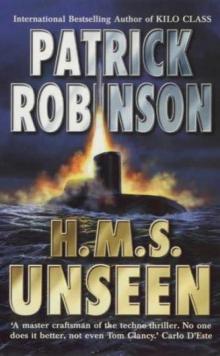 H.M.S. Unseen am-3
H.M.S. Unseen am-3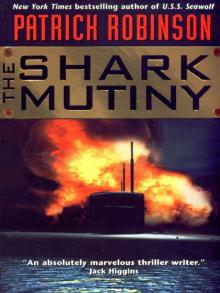 The Shark Mutiny (2001)
The Shark Mutiny (2001)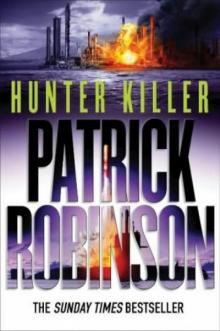 Hunter Killer am-8
Hunter Killer am-8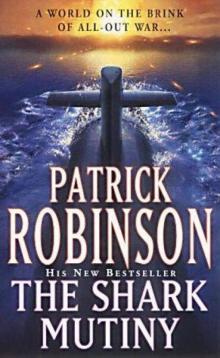 The Shark Mutiny am-5
The Shark Mutiny am-5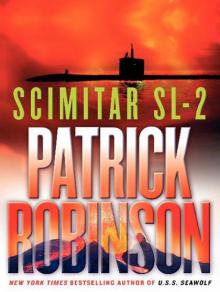 Scimitar SL-2
Scimitar SL-2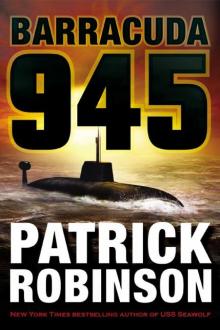 Barracuda 945 am-6
Barracuda 945 am-6 Hunter Killer
Hunter Killer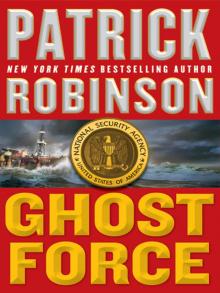 Ghost Force
Ghost Force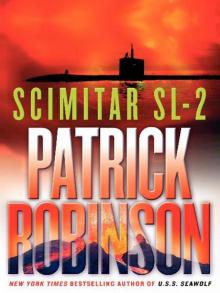 Scimitar SL-2 (2004)
Scimitar SL-2 (2004)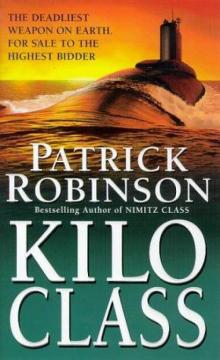 Kilo Class am-2
Kilo Class am-2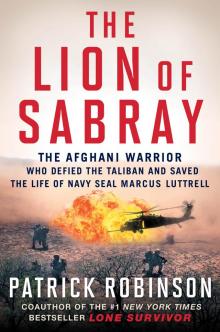 The Lion of Sabray
The Lion of Sabray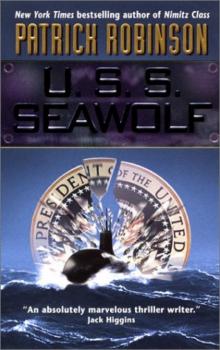 U.S.S. Seawolf am-4
U.S.S. Seawolf am-4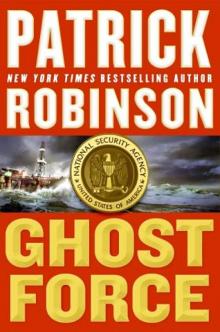 Ghost Force am-9
Ghost Force am-9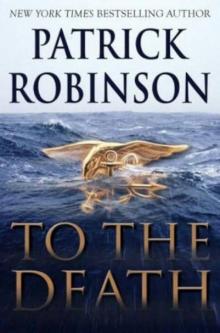 To the Death am-10
To the Death am-10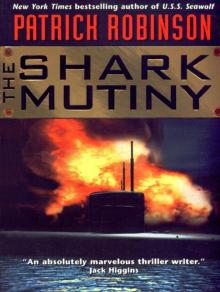 The Shark Mutiny
The Shark Mutiny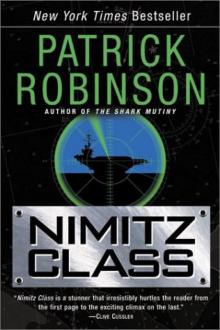 Nimitz Class am-1
Nimitz Class am-1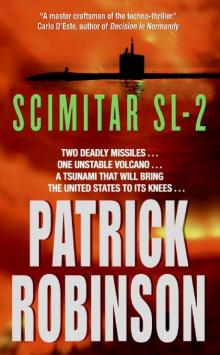 Scimitar SL-2 am-7
Scimitar SL-2 am-7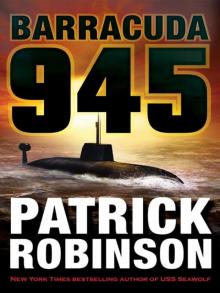 Barracuda 945
Barracuda 945 Intercept
Intercept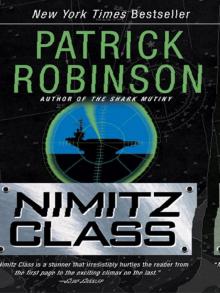 Nimitz Class (1997)
Nimitz Class (1997)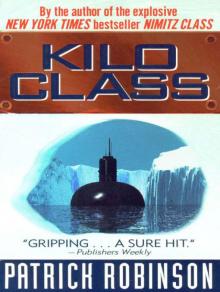 Kilo Class
Kilo Class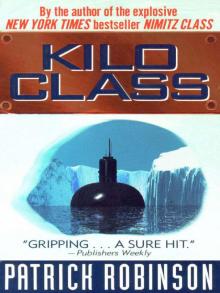 Kilo Class (1998)
Kilo Class (1998) Diamondhead
Diamondhead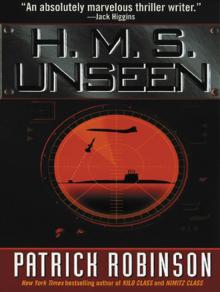 H.M.S. Unseen
H.M.S. Unseen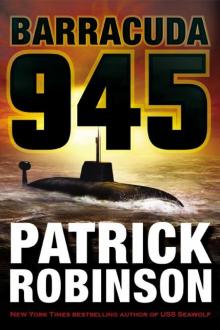 Barracuda 945 (2003)
Barracuda 945 (2003)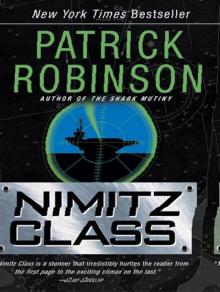 Nimitz Class
Nimitz Class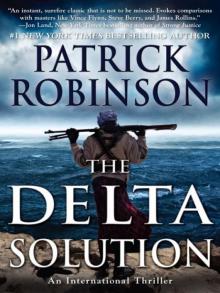 The Delta Solution
The Delta Solution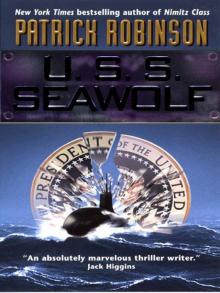 U.S.S. Seawolf
U.S.S. Seawolf